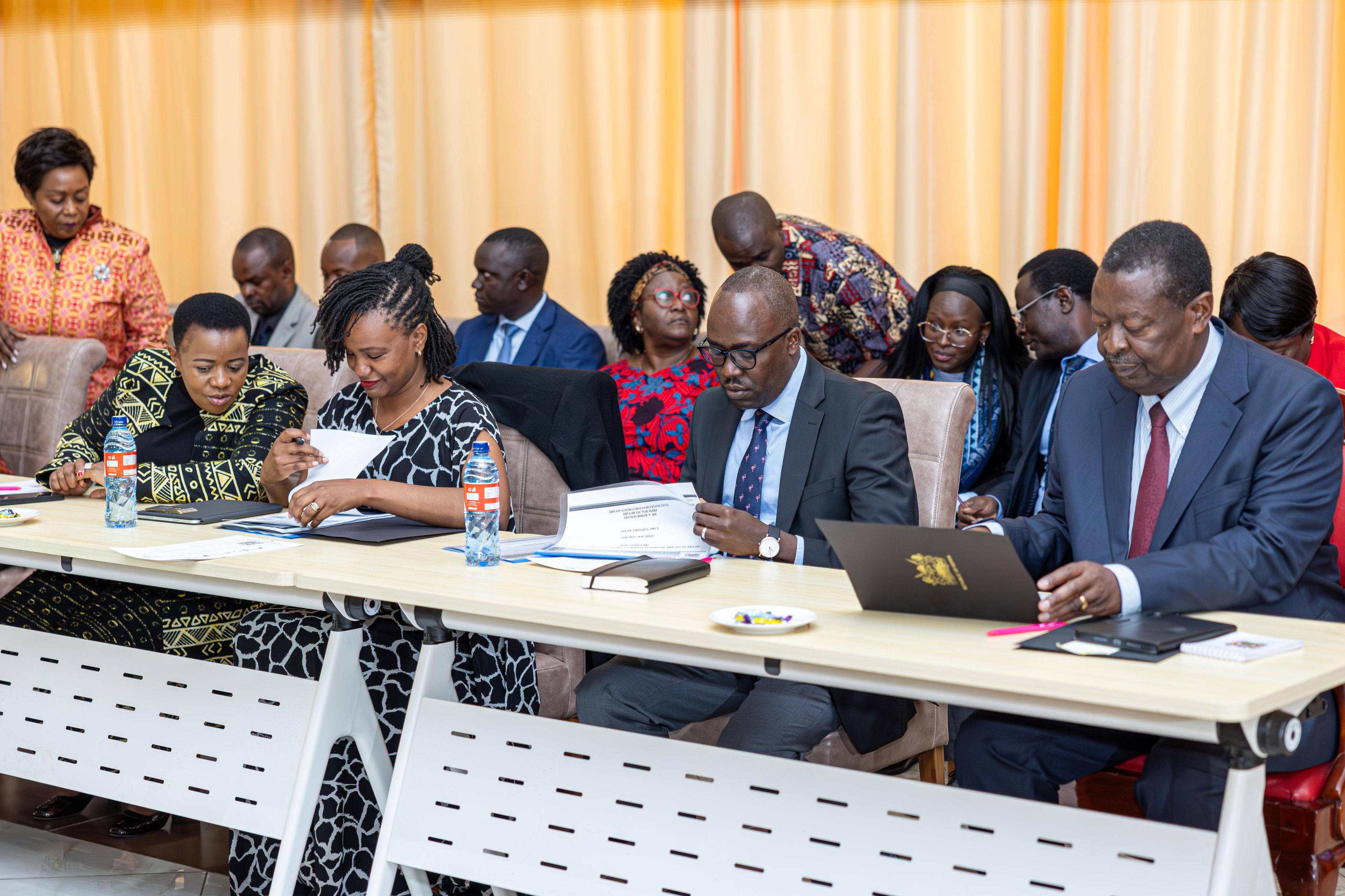

In the final Sessional Paper No 1 of 2025 on Kenya’s Foreign Policy submitted to Parliament, the Foreign Affairs ministry says it is already cash-strapped, and the cuts could lead to inadequacies and financial gaps that hamper planned implementation of the policy.
“For example, budgetary cuts can constrain the ability to respond and evacuate cases of Kenyans in distress abroad,” it says in the document.
“Similarly, delayed Exchequer releases could limit the ministry’s ability to implement its planned programmes in good time, disrupting the foreign policy implementation plans and programmes.”
The ministry argues that it should instead get extra funding, which is justified by the growth of the Foreign Service Cadre, evolving regional peace and security situation.
It also cites the increasing demand for diplomatic interventions, the expansion of Kenya’s diplomatic footprint and the corresponding need for diplomatic infrastructure.
“Over the last 20 years, Kenya’s diplomatic footprint, which includes fully fledged diplomatic missions, honorary consulates and liaison offices, has expanded significantly from 16 missions in 1995 to the current 70 missions,” the policy says.
The missions are spread across the globe as follows: 29 in Africa, 15 in Europe, 10 in Asia and the Pacific, nine in the Middle East and seven in the Americas.
This translates to an average of two missions per year.
It is projected that by the year 2030, Kenya will establish an additional 10 missions, the paper says.
This expansion comes with the need for extra staff, which has increased from 685 in 2009 to 1,070 personnel in 2024, a growth of 56.2 per cent.
“Out of its current establishment, 399 members of staff are deployed in Kenya missions, while the remaining 671 are deployed at the ministry headquarters. Presently, the missions are acutely understaffed due to inadequate funding.
“The situation is even more demanding in the multilateral stations, where the scope of work and workload is greater,” the paper adds, further projecting the number to increase to be more than 3,000 in the next five years.
The ministry laments that despite the steady expansion in the mandate, functions, activities and personnel of the Foreign Service, resource allocation has remained largely stagnant for an extended period.
For instance, the policy says, between the 2014-15 and 2026-27 financial years, the total resource requirements for the State Department for Foreign Affairs have shown a significant upward trend, rising from Sh20.5 billion to Sh52.9 billion in 2024-25, a 158 per cent increase in 10 years.
“Projections for 2026-27 indicate an increase to Sh57.02 billion, reflecting a cumulative growth of 178 per cent from the 2014-15 baseline,” it adds.
Allocations from the Exchequer have also steadily increased during this period, from Sh15.7 billion in 2014-15 to Sh21.65 billion in 2024-25.
However, the rate of increase “significantly trails the rise in total resource requirements, highlighting a widening funding gap over time”.
It projects that the State Department for Diaspora Affairs will require Sh22.86 billion to fully implement its Strategic Plan, with the bulk of resources coming from the Exchequer.
The funds will be used in the provision of diaspora and consular services to Kenyans abroad, championing the diaspora welfare and rights and establishing a Diaspora Integrated Information Management System.
They will also be used in facilitating international placement and opportunities for Kenyans, creating an incentive framework for diaspora remittances, hosting strategic diaspora investment conferences and general implementation of the State Department’s core mandate as envisaged in the Executive order No 1 of 2023, the policy adds.
The ministry is, however, seeking Public-Private Partnerships to undertake some of the activities to offset the budget.
For example, the Diaspora department has proposed PPPs and collaboration with financial institutions help mobilise resources for programmes, such as skill transfer, social security portability and remittance cost reduction.
The Foreign Service department, on the other hand, is proposing PPPs for the acquisition and development of properties abroad to serve as chanceries, residences and staff houses.
The ministry urges Parliament to: consider and support the adoption of PPP arrangements for optimal utilisation of idle properties, maximisation of the commercial value of the properties and savings in rental costs incurred by the government, and acquisition of new properties and their resultant monetisation.
It is also seeking Parliament’s approval to transfer the docket from the Public Administration and International Relations Sector Working Group to the Security Sector Working Group.
“This will lead to the enhancement of the ministry’s budget ceiling and align all the ministry’s operations within the security sector working group,” the policy says.
It is also seeking approval for budgetary allocation for the Diaspora Welfare Fund due to increased cases of Kenyans in distress abroad and the plight of migrant workers.
It also wants facilitation of the establishment of a Contingency Fund to cushion the missions against forex losses.
Consideration should also be made to reinstate the “Forex Loss Assumption Facility”, it recommends.

















